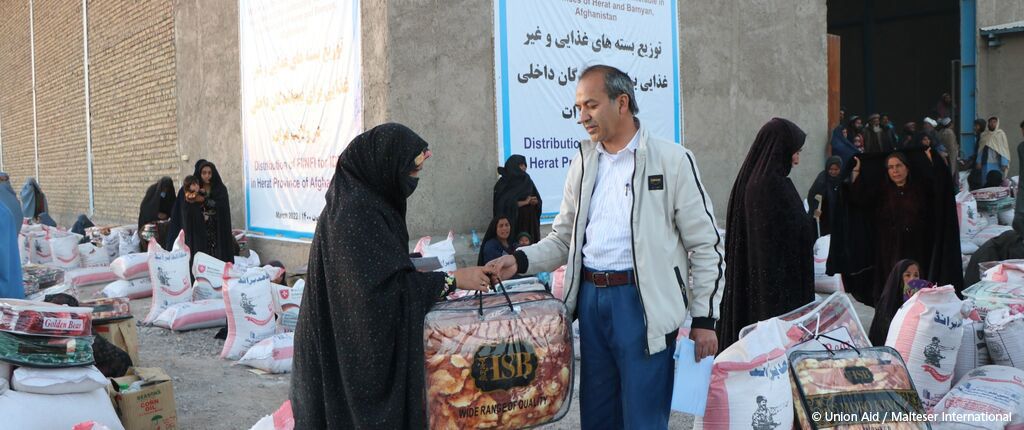
Winter emergency relief for vulnerable and internally displaced families in Herat and Bamyan, Afghanistan
The situation of the people in Afghanistan was already dramatic before the Taliban took power. However, the political upheavals have increased the hardship of many Afghans immensely. Many people have lost their means of income, and at the same time the prices of food and other basic goods have increased. Millions of people do not know how to provide for themselves and their families. A severe drought has led to one of the weakest harvests in years. Livestock died. Many people's savings have already been depleted.
And now winter: The freezing winter temperatures are hitting poor rural families especially hard, who already have no food supplies, let alone money for blankets or fuel for heating, as a result of this crisis-ridden year. People living as internally displaced persons in tents or temporary shelters also do not know how to protect themselves from the cold.
Together with our partner Union Aid, we are helping 4,000 vulnerable and internally displaced families to survive the cold winter months.
Since the Taliban took power on August 15, 2021, the humanitarian situation in Afghanistan has deteriorated dramatically. Even before the crisis, the country had massive humanitarian needs and faced large numbers of internally displaced people due to conflict and drought. The Covid-19 pandemic further exacerbated poverty and food insecurity. The recent shift in leadership in the country and the withdrawal of many humanitarian actors is having an extreme impact on already poor basic services, financial systems, and markets. The upcoming winter further increases the hardship and needs of the people. A humanitarian catastrophe is looming.
Devastating food situation
According to the IPC report, one in two people in Afghanistan will lack safe access to food or suffer acute hunger in the winter months from November 2021 to March 2022. In no other country are so many people thus at risk of acute food insecurity as in Afghanistan.
No protection from the cold
Every year, freezing winter temperatures, especially in high-altitude areas, result in life-saving winter relief for the majority of affected people, whose shelters offer no protection from the cold and who lack the financial means to purchase fuel and heating equipment. IDPs in particular are at increased risk of exposure to the harsh winter climate. Often living in makeshift shelters, they have been able to take only a few items with them on their flight and lack clothing, blankets, food supplies, etc.
Being exposed to the cold without protection also has serious effects on people's health. People's immune response is reduced and respiratory infections increase. According to the Whole of Afghanistan Assessment report, more hospitalizations are recorded during the winter months, as well as an increase in mortality rates. Approximately 25% to 30% of deaths in children under five are due to respiratory infections, and 90% of these deaths are due to pneumonia.
COVID-19
The COVID-19 outbreak has impacted all aspects of people's lives in Afghanistan, in many cases exacerbating existing humanitarian needs. As of early August 2021, more than 148,000 people had (officially) been infected with COVID-19 and 6,882 people had died. Since the start of the third wave in June 2021, the number of cases has increased exponentially, averaging more than 2,000 new cases and 100 deaths per day.
The aim is to help poor and vulnerable families in Bamyan province and Shahrake Sabz IDP camp in Herat province to survive the cold winter season by providing them with essential goods.
Together with our partner Union Aid, we help 4,000 vulnerable and internally displaced families to get through the winter.
- We distribute food packages for the winter months, consisting of non-perishable food items such as flour, rice, beans, oil, etc.
- We distribute shelter packages for winterization with blankets.
- We distribute Covid-19 hygiene kits with masks, soaps and hygiene items and educate about hygiene measures.
Country info
Capital: Kabul
Area: 652.864 km²
Population: approx. 39 million
Project data
Donor: German Federal Foreign Office, Nachbar in Not
Partner: Union Aid








